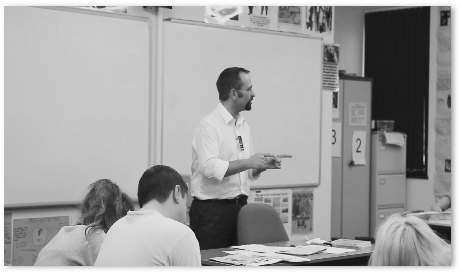|
|
|
|
Introductory |
This is a lesson plan designed to help introduce students to some basic sociological concepts (roles and values, for example). It can also be used to introduce ideas about social structure and social action. |
|
|
While this isn't exactly a lesson plan, it's an online set of lateral thinking puzzles (with answers) that I've used as a kind of first sociology class introduction. It's an interesting little ice- |
|
|
This group and class- |
|
|
Nine classroom- If you want to play the Socialisation Game you will need this game board. |
|
|
A simple, counter- |
|
Family |
Divorce |
|
|
Domestic Labour |
|
|
Social Change |
|
Education |
Research Search |
|
|
A multi- |
|
|
Why Are You Still Here? |
|
|
Class and Achievement |
|
|
Gender and Achievement |
|
|
Ethnicity and Achievement |
|
|
Exercise designed to help students evaluate labelling processes within the education system by examining "classroom values". |
|
Mass Media |
Ownership and Control |
|
|
Selection and Representation |
|
Theory |
This lesson outline combines notes and practical exercises you can use to explain the related concepts of simulacra and hyperreality. |
|
Religion |
Theories of Religion |
|
|
Discussion exercise linking fundamentalist religious groups and movements to political parties and ideologies. |
|
|
Discussion exercise that analyses the role of the Church of England in terms of its spiritual and material roles. |
|
Crime and Deviance |
Radical Criminology |
|
|
A whole- |
|
|
Defining Deviance |
|
|
A simple exercise designed to get students thinking about personal and social characteristics associated with a label. |
|
|
Opportunities for students to link crime, deviance and research methods in a practical way are often limited by the constraints of time and space - |
|
Social Inequality |
Social Stereotypes |
|
|
In this lesson students are encouraged to develop their understanding of various perspectives on social class by applying theories of class to various basic class categories. |
|
|
Life Chances |
|
|
The Hidden Rules of Social Classes Reintroduce a cultural dimension to social class by applying these "rules" to a range of areas (from culture and identity to social inequality). And if you really want to push the boat out, try throwing the "Language of Education" simulation into the mix... |
|
|
Using Analogies: How Inequality Creates Inequalities Lesson Outline looking at the relationship between poverty and social inequality that uses a "mountain climbing" analogy to sensitive students to how inequality creates further inequalities. |
|
Methodology |
What's Your Methodology? |
|
|
A group / whole class exercise designed to demonstrate how the post- |
|
|
Prove It Too! |
|
|
Society Is Like... |
|
|
Family Death Rates: The Grandmother Problem A simple and effective way to teach correlation, causation and the difference between the two, using the little- |
|
Revision |
A simple, competitive, revision game that contributes to the development of student knowledge and encourages planning techniques for their exam. |
|
|
A simple "Hangman" group game designed to make revision interesting. It also highlights the knowledge and interpretation aspects of the syllabus. |
|
|
The Philosophy Game |
|
|
This is a practical exercise designed to help students understand the Skill Domains of interpretation, application and evaluation. Although designed as a whole- |
|
|
30 Second Street |
|
|
This is a simple revision technique (based on key words) that involves constructing simple stories to help students remember key ideas in their exam. |
|
|
Developing Skill Domains |
|
|
The Identity Game |
